The story of a biologist’s lifelong study of an endangered species — and its future

ONE OF THE RARE disagreements between my parents came early in their marriage. My dad, George Mitchell, a biologist, had shot a magnificent buck pronghorn, had had its head taxidermied, and then wanted to give him pride of place in my mother’s elegant living room.
My mother, Constance Mitchell, a modern painter who carefully curates her surroundings, was horrified. Immune to Dad’s protestations that this pronghorn was, as he wrote in his journal, a “museum quality specimen,” she banished the stuffed beast to the rec room in the basement where it promptly became a quizzical witness to our family life. It was so lifelike that it often seemed to me it was simply passing by and had thought to poke its head through the wall, keen to see what we were watching on television.
Dad was right about one thing. Pronghorns are majestic to begin with, but this fellow was something special: inky Y-shaped horns as thick as my wrist, square snout splotched with black, supersized dark eyes tipped with long lashes, a pair of white chevrons running down the buff of his throat. Even after decades on the wall, his ears were pricked so high I could almost feel him listening in on our conversations.
My dad, who died in June 2017 at 91, loved that pronghorn. But not just that one. He loved the whole species, Antilocapra americana. In his 1980 book, The Pronghorn Antelope in Alberta, my dad refers to his passion as an affair of the heart that never lost its fire. Maybe it was the lure of the unknown. The pronghorn was a scientific mystery when my dad was hired as the Alberta government’s first game biologist in 1952 and began to study it.
この記事は Canadian Geographic の May/June 2018 版に掲載されています。
7 日間の Magzter GOLD 無料トライアルを開始して、何千もの厳選されたプレミアム ストーリー、9,000 以上の雑誌や新聞にアクセスしてください。
すでに購読者です ? サインイン
この記事は Canadian Geographic の May/June 2018 版に掲載されています。
7 日間の Magzter GOLD 無料トライアルを開始して、何千もの厳選されたプレミアム ストーリー、9,000 以上の雑誌や新聞にアクセスしてください。
すでに購読者です? サインイン
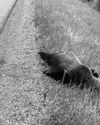
ANIMAL XING
THIS PAST SUMMER AN AMBITIOUS WILDLIFE UNDER/OVERPASS SYSTEM BROKE GROUND IN B.C. ON A DEADLY STRETCH OF HIGHWAY JUST WEST OF THE ALBERTA BORDER. HERE’S HOW IT HAPPENED.
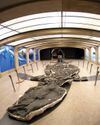
Unearthing a giant
Almost 30 years ago, paleontologist Elizabeth “Betsy” Nicholls made a discovery of colossal proportions
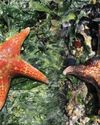
WE DID THIS
AS THE IMPACTS OF GLOBAL WARMING BECOME INCREASINGLY EVIDENT, THE CONNECTIONS TO BIODIVERSITY LOSS ARE HARD TO IGNORE. CAN THIS FALL’S TWO KEY INTERNATIONAL CONFERENCES POINT US TO A NATURE-POSITIVE FUTURE?

The COOLEST COUNTRY
“The coolest country” celebrates the wonders of winter with an all-Canadian theme. The 20-page travel planner includes a bucket list from travel writer Robin Esrock, steamy spa ideas, ice fishing destinations, festival fun, northern itineraries and more!
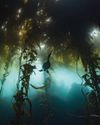
KEEPER of the SEA
FROM BEING LABELLED DEVIL’S APRON BY FRUSTRATED FISHERMEN TO BEING LAUDED AS A SUSTAINABLE FOOD SOLUTION: HOW KELP’S POTENTIAL IS BEING REALIZED, JUST AS SCIENTISTS LEARN IT’S DECLINING
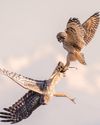
WILD THINGS
WILD CANADIAN GEOGRAPHIC PRESENTS THE WINNERS OF ITS ANNUAL CANADIAN WILDLIFE PHOTOGRAPHY OF THE YEAR COMPETITION

AN EMPTY LANDSCAPE
AFTER MORE THAN A MILLION YEARS ON EARTH, CARIBOU ARE UNDER THREAT OF GLOBAL EXTINCTION. THE PRECIPITOUS DECLINE OF THE ONCE MIGHTY HERDS IS A TRAGEDY THAT IS HARD TO WATCH — AND EVEN HARDER TO REVERSE.
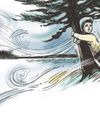
NORTHERN EXPOSURE
BON INTO A CARIBOU-HUNTING CREE FAMILY IN NORTHERN MANITOBA, ACCLAIMED PLAYWRIGHT AND NOVELIST. TOMSON HIGHWAYS PAYS TRIBUTE TO THE MAGICAL WORLD OF HIS CHILDHOOD IN PERMANENT ASTONISHMENT

INTO THE ARCTIC
CANADIAN PAINTER AND FILMMAKER CORY TRÉPANIER EXPLORES THE SUBLIME AND RAPIDLY CHANGING CANADIAN ARCTIC

Under the ice
Until the last decade, we knew little about what lay beneath the Arctic ice. Now scientists and explorers are shedding light on this vanishing world.